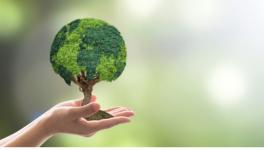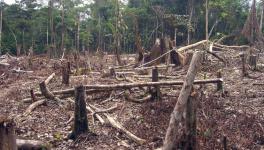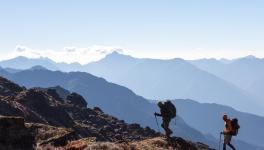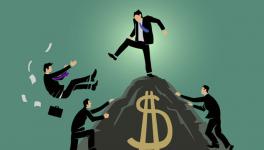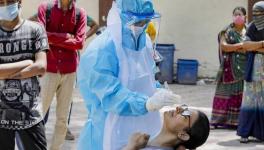Dialling Back to My Environment During COVID-19 Lockdown
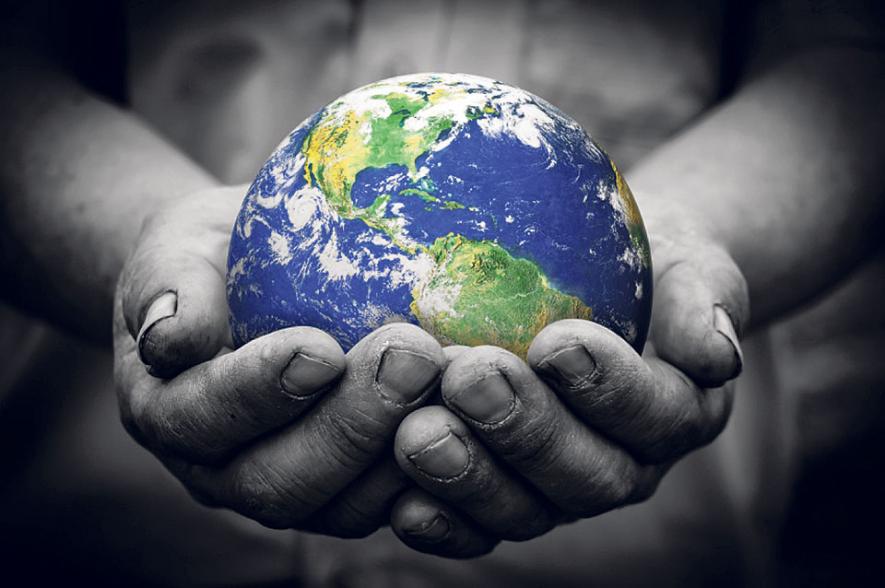
Representational Image.
Stay indoors, stay safe. Or the many variants: stay-at-home; hunker down; stay hermetically sealed from the external world. This seems the reset button – the Earth’s lockdown phase as it goes under repair! The directive: stay off corona, out to puncture human hubris. Look at the irony – lockdown is no better than a metonym for house arrest or hiding when one is running away from the law, but this one is legit; and social distancing is asking people to back off us – to stave off threat to me and potential death.
Even suffering and death seem so pathetic and lonely – no friends/family-members around, just the gloved-masked healthcare professionals peering gingerly from behind the safety of PPEs and facial shields. Life has pivoted into a brutal curse. No one has an answer.
Sitting cocooned at home, locked-in, learning about the macabre roll call of lives lost across the world, my mind queerly harkens back to my first stint in the Environment and Forests Ministry in the 1990s. It came unbidden in a flash – all that I had once heard and once thought to be light years away – now emptying itself in my head as real.
“Think global, act local,” was the tag line. The pitter patter of the need to conserve biosphere reserves and wetlands comes right back. Biodiversity was evolving then – a new concept, fuzzy to most generalists, as was climate change. Wildlife and Project Tiger were other defining themes, but rather than getting into its soul, how mulish I was to equate them with wildlife safari to satiate man’s curiosity and provide entertainment!
As days grew into months and years, I discerned the importance of nature and the need to strike the right ecological balance. As we celebrate the 50th anniversary of Earth Day (April 22, 2020), COVID-19 has devastated humanity. Time to recall a poster marking the First Earth Day: “We’ve met the enemy and he is here – us!” But we never heeded, we thought it was mere rhetoric.
Also read: Earth Day: Thousands of Scientists Are Waving Red Flags
We despoiled the Earth. Around the start of the 20th century, the world wasn’t exactly a pristine place, yet vast chunks of natural habitats were still intact to prompt Charles Dickens to gush over “primeval forest undefaced by the hand of man”. But as the century rolled out, all natural offerings started getting breached to ravish the earth. In our quest for material gains humankind senselessly indulged in “Wild Capitalism” – logging timber across the earth’s surface in Amazon basin, Russia, Canada, West and Central Africa, not to forget Asia and India. With depletion of natural forests, we destroyed/degraded wetlands, reef systems, mangroves, and natural springs. Capping it was pollution, filling the air with toxic waste in air, soil, and water.
The toll on countless species was slow but immense. The fauna-flora and eco-balance of nature regressed in the face of “sustainable development” that was barely sustainable. Yet, this vacuous term – sustainable development – got a leg-up in humanity’s quest for material growth and colonised our minds. Environment, susceptible to easy smothering by development’s battle cry, was relegated to the backburner; environmental impact assessments, pollution, climate change, hazardous waste management, and the generic eco-balance became all forgotten. No country cared, as loss of species quickly accelerated to despoil fragile ecosystems. Despite loud promises to preserve Planet Earth, governments world over favoured industries – even those environmentally searing.
Swayed by this clamour, we forgot that forests sustained civilisations, granting life’s protective shield: water quality and soil stability; acted as “carbon sinks”; habitats for fauna-flora from which arose biodiversity providing environmental equilibrium. While some “greens” frenetically stepped up efforts to pulse messages of environmental awareness to surge, precious little was done. Time was lost. Now, we see its calamitous results.
Wildlife scientists and environmentalists analysing the COVID-19 pandemic have zeroed in on its zoonotic origin– that most viruses originate in animals. “Sixty percent of emerging infectious diseases that affect humans are zoonotic — they originate in animals. And more than two-thirds of those originate in wildlife”, wrote Jim Robbins in The Ecology of Disease in The New York Times. Barack Obama warned in 2014, as did Bill Gates in 2015. I heard more of such issues in my second stint in the Environment Ministry during 2013-15. No one cared. Our ministry – supposedly a scientific one – had become a bureaucrats’ haven, we had no bandwidth to appreciate, or the urge to do anything. The scientists, forest and wildlife experts, sadly, had been marginalised – with no say.
Also read: Celebrating World Water Day While Earth’s Fever Climbs
But the ‘deafness’ wasn’t ours only; it was a symptom world over. Governments focused on GDP growth, obsessing on natural capital to push up their wealth. COVID-19 has now woken us – not merely to pronounce, but to act. But the crucial question is: will it satisfy emerging consumerist economies to remember the pandemic post-vaccine development, and not get back to its old ways? The world has shrunk into a global village, not merely as a marketplace for commerce, but life without borders, and future pandemics without limits. “An outbreak anywhere is an outbreak everywhere!” said New York Governor Andrew Cuomo in one of his recent daily press briefings. How right he was.
Notwithstanding the pandemic and the likely others to follow, we need to ask the vital question: Can the selfishness of the apologists of Mammon that spurred a bespoke materialistic culture holding the world in thrall these past years morph overnight into apostles of conservation to revere nature and repair the serious damage wrought on it? Will they appreciate environmentalist Edward Abbey’s sage words – Growth for the sake of growth is the ideology of the cancer cell – and act against their own impulses? Will the world community across geographies accept past mistakes, and see the folly of their own acts. This realisation is crucial.
Humanity needs to pause, to rethink living on Mother Earth, remembering all along that we have merely borrowed this planet from all future generations. Today animal scientists and biologists warn that more pandemics, worse than COVID-19, could follow. We need to realise that our mindless development model has failed us. All these millennia we lived happily on Planet Earth revering nature, ensuring that the fragile eco-balance is not cleaved. If this isn’t the time to revert to that reverence, when is?
The author is a former civil servant who retired as Financial Adviser, Ministry of Defence. The views are personal.
Get the latest reports & analysis with people's perspective on Protests, movements & deep analytical videos, discussions of the current affairs in your Telegram app. Subscribe to NewsClick's Telegram channel & get Real-Time updates on stories, as they get published on our website.










